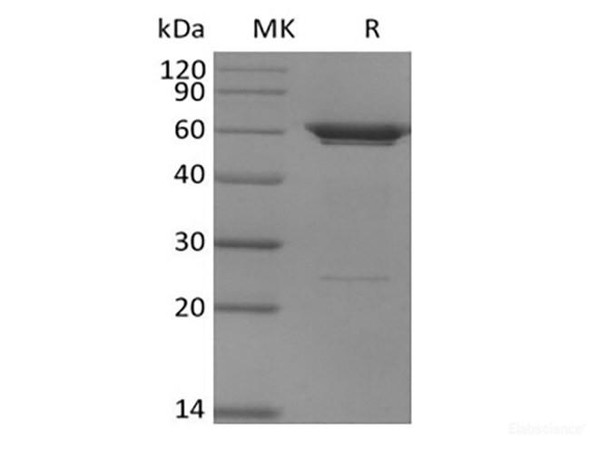| Sequence: | Met1-His520 |
| Accession: | Q16875 |
| Storage: | Store at < -20°C, stable for 6 months. Please minimize freeze-thaw cycles. |
| Shipping: | This product is provided as liquid. It is shipped at frozen temperature with blue ice/gel packs. Upon receipt, store it immediately at < - 20°C. |
| Formulation: | Supplied as a 0.2 μm filtered solution of 50mM Tris-HCl, 50mM KCl, 1mM DTT, 0.1mM EDTA, 20% Glycerol, pH 8.0. Normally 5 % - 8 % trehalose, mannitol and 0.01% Tween80 are added as protectants before lyophilization. Please refer to the specific buf |
| Reconstitution: | Not Applicable |
| Background: | Fructose-2,6-biphosphatase 3, also known as 6-phosphofructo-2-kinase or PFK2 or PFKFB3, involved in both the synthesis and degradation of fructose-2,6-bisphosphate, a regulatory molecule that controls the activity of the enzymes phosphofructokinase 1 (PFK-1) and fructose 1,6-bisphosphatase (FBPase-1) to regulate glycolysis and gluconeogenesis. Highly phosphorylated PFKFB3 protein was found in human tumor cells, vascular endothelial cells, and smooth muscle cells. Because of its proto-oncogenic character, the PFK-2/FBPase-2 of the PFKFB3 gene is assumed to play a critical role in tumorigenesis. PFKFB3 also plays a crucial role in the progression of cancerous cells by enabling their glycolytic pathways even under severe hypoxic conditions, which makes it a potential target for cancer therapy. |






